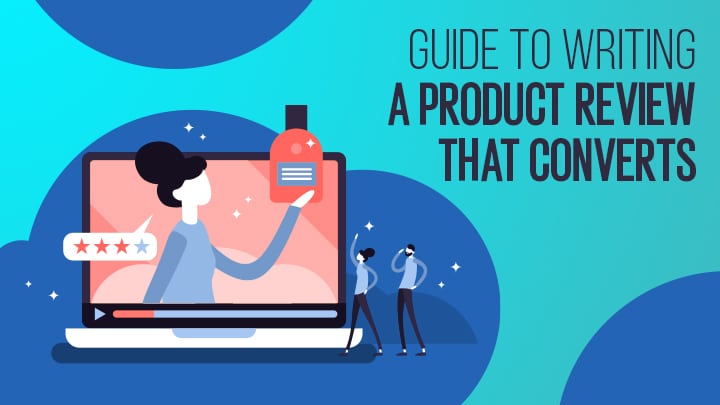Why Brands Want You to Review Their Products
Product reviews have become an essential component of a brand’s marketing strategy. By leveraging reviews, brands can increase visibility, credibility, and customer trust. For instance, Fitbit, a leading wearable technology brand, has benefited significantly from reviews. Positive reviews have helped shape Fitbit’s brand reputation, making it a household name. Similarly, Nike, a renowned sportswear brand, has also seen a significant impact on its brand reputation due to reviews. Reviews have helped Nike build trust with its customers, ultimately driving sales and revenue.
Reviews provide brands with valuable feedback, which can be used to improve product development, customer service, and overall customer experience. Moreover, reviews can also help brands identify potential issues and address them promptly, reducing the risk of negative publicity. By encouraging reviews, brands can demonstrate their commitment to transparency and customer satisfaction, ultimately building a loyal customer base.
In today’s digital age, reviews play a crucial role in influencing purchasing decisions. According to a study, 85% of customers trust online reviews as much as personal recommendations. This highlights the importance of reviews in shaping customer perceptions and driving sales. By getting their products reviewed, brands can tap into this powerful marketing channel, increasing their online visibility and credibility.
So, how do brands benefit from product reviews? The answer lies in the increased visibility, credibility, and customer trust that reviews provide. By leveraging reviews, brands can build a strong online presence, drive sales, and ultimately, achieve their marketing goals. As a reviewer, understanding the importance of reviews can help you navigate the process of getting free products to review, and building long-term relationships with brands.
Building Your Online Presence as a Reviewer
Establishing a strong online presence is crucial for reviewers who want to get free products to review. A professional website or blog is essential for showcasing your expertise and building credibility with brands. When creating your website or blog, consider the following tips:
First, choose a domain name that is easy to remember and relevant to your niche. For example, if you’re a beauty reviewer, you might choose a domain name like “beautyreviews.com”. Next, select a web hosting service that is reliable and offers good customer support. Finally, design a website or blog that is visually appealing and easy to navigate.
In addition to having a professional website or blog, it’s also important to engage with your followers on social media platforms like Instagram or YouTube. These platforms offer a great way to build your personal brand and connect with potential brands. When using social media, be sure to post high-quality content that is relevant to your niche and engage with your followers by responding to comments and messages.
Having a strong online presence is key to getting free products to review. By establishing a professional website or blog and engaging with your followers on social media, you can build credibility with brands and increase your chances of getting free products to review. Remember, building a strong online presence takes time and effort, but it’s worth it in the long run.
Some popular social media platforms for reviewers include Instagram, YouTube, and TikTok. These platforms offer a great way to showcase your personality and expertise, and can help you build a large following. When using social media, be sure to post high-quality content that is relevant to your niche, and engage with your followers by responding to comments and messages.
By building a strong online presence, you can increase your chances of getting free products to review and build long-term relationships with brands. Remember to always be professional and respectful in your online interactions, and to follow the Federal Trade Commission (FTC) guidelines on sponsored content.
How to Reach Out to Brands for Free Products
Reaching out to brands for free products can be a daunting task, but with the right approach, it can be a successful one. To increase your chances of getting free products to review, it’s essential to research the brand’s product review policies and understand what they are looking for in a reviewer. This can be done by visiting the brand’s website and looking for a section on product reviews or influencer partnerships.
Once you have researched the brand’s policies, it’s time to craft a compelling pitch. This should include a brief introduction to yourself and your review platform, as well as an explanation of why you are interested in reviewing their product. Be sure to highlight your relevant experience and expertise, as well as your audience demographics and engagement metrics.
When reaching out to brands, it’s essential to be polite and professional. Use a formal email address and include a clear subject line that indicates the purpose of your email. Address the email to a specific person, such as the marketing manager or influencer relations coordinator, and be sure to proofread your email for spelling and grammar errors.
Here’s an example of a pitch email that you could send to a brand:
“Dear [Marketing Manager’s Name],
I am reaching out to express my interest in reviewing
The Power of Networking with Other Reviewers and Influencers
Networking with other reviewers and influencers in your niche can be a powerful way to learn about new products, share best practices, and potentially collaborate on reviews or content. By connecting with others who share your interests and expertise, you can gain valuable insights and stay up-to-date on the latest trends and developments in your industry.
One of the benefits of networking with other reviewers and influencers is the opportunity to learn about new products and services. By connecting with others who have experience with different products, you can gain a deeper understanding of what works and what doesn’t, and make more informed decisions about which products to review.
Networking can also provide opportunities for collaboration and mutual support. By working together with other reviewers and influencers, you can share your expertise and knowledge, and gain exposure to new audiences and platforms. This can be especially helpful for those who are just starting out in the world of product reviewing, as it can provide a valuable source of support and guidance.
In addition to the benefits of learning about new products and collaborating with others, networking with other reviewers and influencers can also help you to build your personal brand and establish yourself as an expert in your niche. By connecting with others who share your interests and expertise, you can demonstrate your knowledge and expertise, and build a reputation as a trusted and authoritative voice in your industry.
So, how can you start networking with other reviewers and influencers in your niche? Here are a few tips:
First, identify other reviewers and influencers in your niche who share your interests and expertise. You can do this by searching for keywords related to your niche, or by looking for online communities and forums where reviewers and influencers gather.
Next, reach out to these individuals and introduce yourself. You can do this by sending a message or email, or by commenting on their blog or social media posts.
Finally, be open to collaboration and mutual support. By working together with other reviewers and influencers, you can build a stronger and more supportive community, and achieve greater success in your niche.
Creating High-Quality Content that Brands Will Love
Creating high-quality content is essential for getting free products to review and building long-term relationships with brands. Brands want to see that you can produce content that showcases their product in a compelling and informative way, and that you have a genuine interest in their brand and products.
So, what makes high-quality content? Here are a few tips:
First, make sure your content is well-written and engaging. Use a conversational tone and include personal anecdotes and experiences to make your content more relatable and interesting.
Second, use high-quality images and videos to showcase the product. This will help to make your content more visually appealing and engaging, and will also give brands a better idea of what their product looks like in real-life situations.
Third, make sure your content is informative and provides value to your audience. Include details about the product’s features, benefits, and any unique selling points. This will help to establish you as an expert in your niche and will also provide brands with a better understanding of what their product can do.
Finally, make sure your content is optimized for SEO. Use relevant keywords and phrases, and make sure your content is easy to read and understand. This will help to increase your visibility and reach a wider audience.
Some popular types of content that brands love include:
Product reviews: In-depth reviews of products, including features, benefits, and any unique selling points.
Unboxing videos: Videos that show the product being unboxed and first impressions.
Tutorials and how-to guides: Step-by-step guides on how to use the product or achieve a specific result.
Comparisons: Comparisons of different products or brands, highlighting the pros and cons of each.
By creating high-quality content that showcases products in a compelling and informative way, you can increase your chances of getting free products to review and building long-term relationships with brands.
Disclosing Free Products and Maintaining Transparency
When it comes to reviewing free products, transparency is key. Brands want to know that you are being honest and upfront with your audience, and that you are disclosing any free products or services that you receive.
The Federal Trade Commission (FTC) has guidelines in place for sponsored content, including product reviews. According to the FTC, reviewers must clearly and conspicuously disclose any material connections they have with the brand, including free products or services.
So, how can you maintain transparency and disclose free products in your reviews? Here are a few tips:
First, clearly state that you received the product for free in your review. This can be done in a simple statement at the beginning or end of your review.
Second, provide a clear and conspicuous disclosure of any material connections you have with the brand. This can include a statement about the brand providing the product for free, or any other relevant information.
Third, make sure your disclosure is easy to understand and is not buried in fine print. Use clear and concise language, and make sure your disclosure is prominently displayed in your review.
By maintaining transparency and disclosing free products in your reviews, you can build trust with your audience and establish yourself as a credible and trustworthy reviewer.
Here is an example of a disclosure statement that you could use in your reviews:
“This product was provided to me for free by [Brand Name]. All opinions and thoughts are my own, and I was not paid to write this review.”
By including a clear and conspicuous disclosure statement in your reviews
Building Long-Term Relationships with Brands
Building long-term relationships with brands is crucial for getting free products to review and maintaining a successful review platform. By establishing a strong relationship with brands, you can ensure a steady flow of products to review and build a reputation as a trusted and reliable reviewer.
So, how can you build long-term relationships with brands? Here are a few tips:
First, respond to their feedback. Brands want to know that you are listening to their concerns and taking their feedback seriously. By responding to their feedback, you can show that you value their input and are committed to building a strong relationship.
Second, provide consistent high-quality content. Brands want to see that you can produce high-quality content on a consistent basis. By providing well-written and engaging reviews, you can demonstrate your expertise and build trust with brands.
Third, be open to future collaborations. Brands want to know that you are interested in working with them long-term. By being open to future collaborations, you can show that you are committed to building a strong relationship and are willing to work together to achieve mutual goals.
By building long-term relationships with brands, you can ensure a steady flow of products to review and build a reputation as a trusted and reliable reviewer. Remember to always be professional, responsive, and open to feedback, and you will be well on your way to building strong relationships with brands.
Some additional tips for building long-term relationships with brands include:
Being proactive and reaching out to brands regularly to inquire about potential collaborations.
Providing exclusive content or promotions to brands to show your commitment to the relationship.
Attending industry events and conferences to network with brands and other reviewers.
By following these tips and building strong relationships with brands, you can increase your chances of getting free products to review and maintaining a successful review platform.
Maximizing Your Chances of Getting Free Products
To maximize your chances of getting free products to review, it’s essential to be proactive, persistent, and professional in your outreach efforts. Here are some additional tips to help you increase your chances of getting free products:
Be proactive: Don’t wait for brands to reach out to you – take the initiative to contact them and ask if they would be interested in sending you free products to review.
Be persistent: Don’t get discouraged if you don’t hear back from a brand right away. Follow up with a polite and professional email to inquire about the status of your request.
Be professional: Make sure your outreach efforts are professional and respectful. Use a formal tone and include all the necessary information, such as your website or social media handle and a brief description of your review platform.
Build relationships: Building relationships with brands and other reviewers can help you increase your chances of getting free products. Attend industry events, join online communities, and engage with brands on social media to build connections and establish yourself as a credible reviewer.
Offer exclusive content: Offer to create exclusive content for brands, such as a review or tutorial, in exchange for free products. This can help you stand out from other reviewers and increase your chances of getting free products.
Follow up: After you’ve received free products, be sure to follow up with the brand to thank them and provide feedback on the product. This can help you build a long-term relationship with the brand and increase your chances of getting free products in the future.
By following these tips and being proactive, persistent, and professional in your outreach efforts, you can increase your chances of getting free products to review and build a successful review platform.








